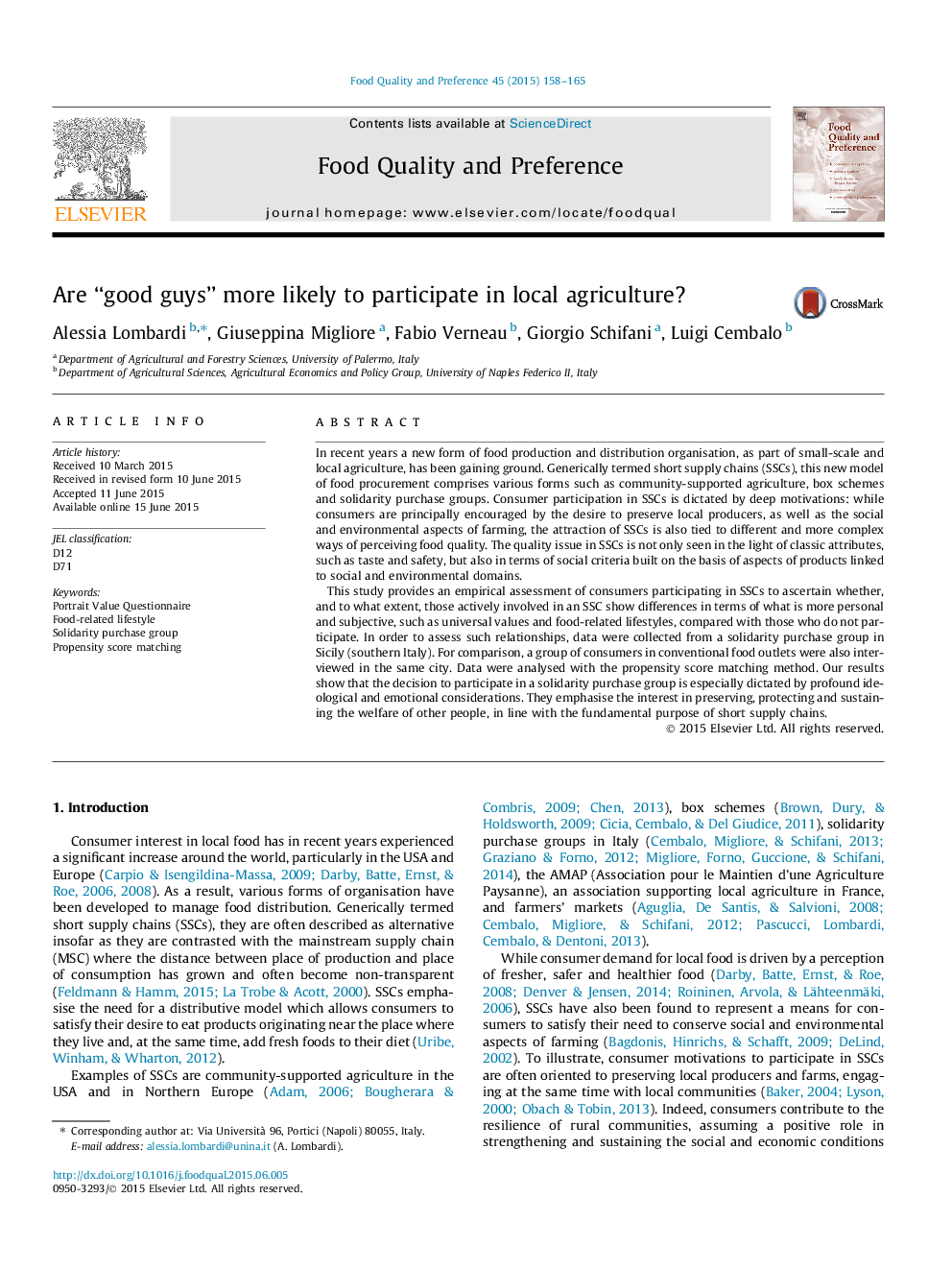| کد مقاله | کد نشریه | سال انتشار | مقاله انگلیسی | نسخه تمام متن |
|---|---|---|---|---|
| 4316933 | 1613152 | 2015 | 8 صفحه PDF | دانلود رایگان |

• We examine if SSCs consumers are different than conventional consumers (non-SSC consumers) in terms of personal values and food related lifestyle.
• We test differences between SSCs and non-SSC consumers in terms of values and FRL.
• We model two sample (SPG and non-SPG consumers) with propensity score matching method to test the differences.
• Participation in a SPG is dictated by ideological and emotional considerations.
• SSCs are promoters of conventions of quality through ethical and social criteria.
In recent years a new form of food production and distribution organisation, as part of small-scale and local agriculture, has been gaining ground. Generically termed short supply chains (SSCs), this new model of food procurement comprises various forms such as community-supported agriculture, box schemes and solidarity purchase groups. Consumer participation in SSCs is dictated by deep motivations: while consumers are principally encouraged by the desire to preserve local producers, as well as the social and environmental aspects of farming, the attraction of SSCs is also tied to different and more complex ways of perceiving food quality. The quality issue in SSCs is not only seen in the light of classic attributes, such as taste and safety, but also in terms of social criteria built on the basis of aspects of products linked to social and environmental domains.This study provides an empirical assessment of consumers participating in SSCs to ascertain whether, and to what extent, those actively involved in an SSC show differences in terms of what is more personal and subjective, such as universal values and food-related lifestyles, compared with those who do not participate. In order to assess such relationships, data were collected from a solidarity purchase group in Sicily (southern Italy). For comparison, a group of consumers in conventional food outlets were also interviewed in the same city. Data were analysed with the propensity score matching method. Our results show that the decision to participate in a solidarity purchase group is especially dictated by profound ideological and emotional considerations. They emphasise the interest in preserving, protecting and sustaining the welfare of other people, in line with the fundamental purpose of short supply chains.
Journal: Food Quality and Preference - Volume 45, October 2015, Pages 158–165